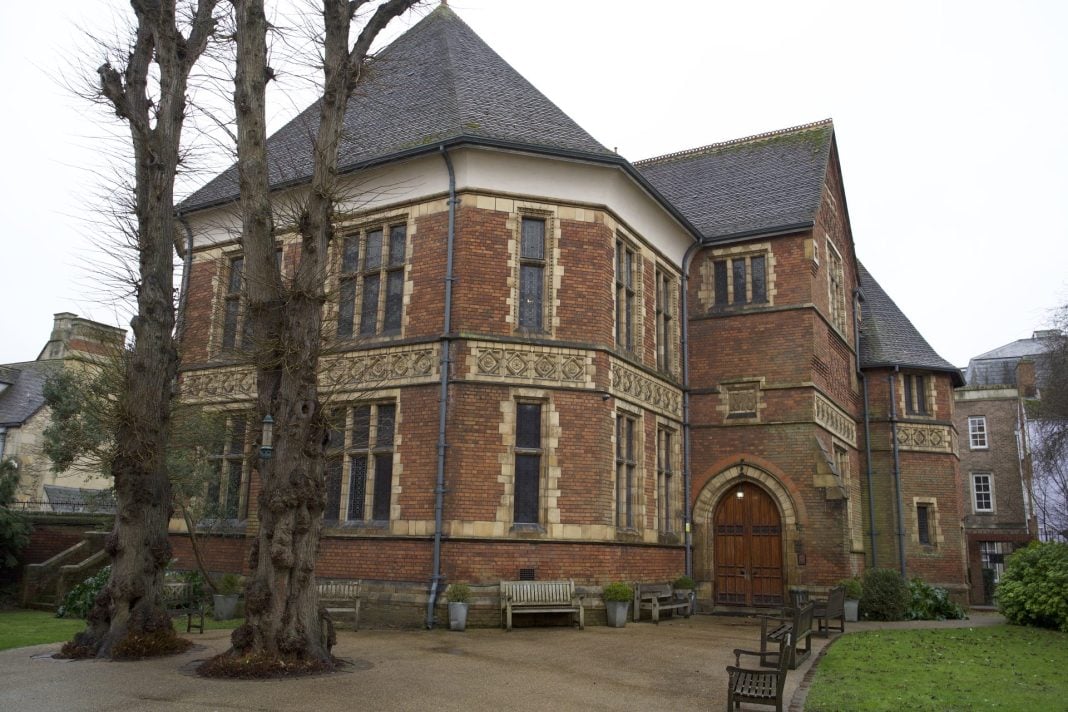On Thursday night, the Oxford Union voted in support of the motion ‘This House Believes The House Of Lords Is Not Fit For Purpose’. The final count had 90 members voting for the motion and 85 members voting against.
Speaking in the proposition were Sir Vince Cable, former leader of the Liberal Democrats, second year PPE student Jenny Heath (Oriel College), and first year History and Politics student Zagham Farhan (University College).
Speaking on side opposition were Lord Kakkar KBE PC, a professor at UCL and member of the House of Lords, and Lord Bilimoria CBE DL, Chancellor of the University of Birmingham and member of the House of Lords. They were joined by law student Silvan Bennett-Schaar (Brasenose College).
Heath opened the case for the proposition by arguing that the House of Lords is unfit to carry out its fundamental purpose. While it is intended to scrutinise the House of Commons by providing expert opinions on bills, she argued that members of the Lords – particularly hereditary peers – are not necessarily experts on doing so. She also pointed out that many members have a very low attendance rate to debates and discussions.
She also argued that due to their lifetime appointments, members of the Lords are not held accountable to the people, and therefore do not “serve the taxpayers that subsidise them.” Further, she argued that it does not descriptively represent the people: 30% of the Lords are women, she noted, and more than 50% went to private schools.
Bennett-Schaar followed Heath by arguing that the House of Lords provides a “vital” counterpower to the House of Commons and “enhances legislative process in the UK.” He argued that the House addresses three main shortfalls of democracy. First, life appointments enable members to endorse a “long term approach to politics.” Secondly, peers are generally appointed for their “great distinguished achievements in business, society and politics” and therefore provide useful expert opinions. Third, its fundamental stability allows it to serve as a “moral compass to help navigate our nation through uncertainty.”
Farhan spoke next in favour of the motion. He said that both life appointments and the existence of hereditary peers – which make British people unequal under the law – were undemocratic. He also criticised the presence of bishops in the House of Lords for breaking separation of church and state.
The Lord Kakkar KBE PC then continued the case for the opposition. He began by arguing that there is a “fundamental misunderstanding” about the complex constitutional workings of parliament: the House of Lords does not impeach or embarrass the House of Commons, but instead scrutinises it and proposes revision of legislation. He stated that most of the time, when amendments are sent from the Lords to the Commons they are accepted, and only in a few cases is there “ping-pong” between the chambers.
Further, he argued that if both houses had elected members, the likely outcome would be severe gridlock. He also argued that if the House of Lords were to be abolished, turning the parliament into a unicameral system, the result would be a strengthened, unchallenged executive.
Sir Vince Cable closed the case for the proposition. He criticised the existence of hereditary peers but, on the matter of bishops, stated he was not opposed to “having God in the House of Lords.”. He also argued that many members are appointed because of their generous donations to the ruling party, which he called undemocratic. Sir Cable concluded by arguing that there is no fundamental need for a second chamber. He told the Chamber it’s “corrupted, … expensive, … unproductive” and noted that 60% of countries in the world don’t have one, including countries like Norway and Sweden.
The Lord Bilimoria CBE DL spoke last for the opposition and started by arguing that the House of Lords does not overrule the House of Commons. In the case of the notorious Rwanda bill, he told the Chamber, the House of Lords was in clear opposition but the Commons still “got their way.” Moreover, he argued that the House of Lords is about a quarter as expensive as the House of Commons and took this to mean that they are a great “value for money.” He concluded by reiterating the importance of a bicameral system. He said: “if you try to change the foundations, you risk bringing the whole house down”.


